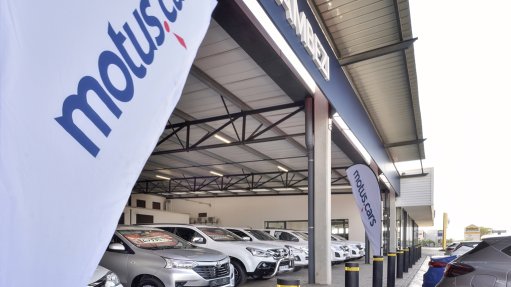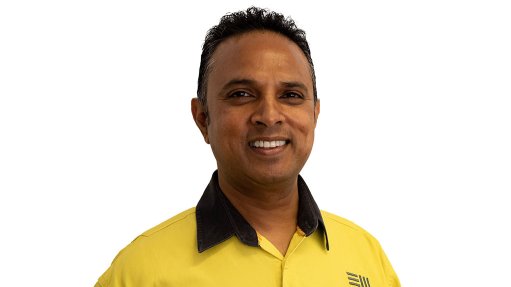Untapped renewable resources in Africa should receive more attention – RES4Africa
As the majority of the world embraces a shift in electricity generation away from fossil fuels towards greener, renewable sources of energy, Africa faces several challenges in attracting investment capital to undertake a significant energy transition, renewable energy support foundation Renewable Energy Solutions for Africa (RES4Africa) secretary general Roberto Vigotti stated on April 19.
Speaking during the first of RES4Africa’s Online Lab series, he said Africa’s energy sector was faced with five main decisions about its green energy trajectory, including its ambitions to achieve universal access to energy, meeting energy demand growth and building a reliable power system.
The third challenge faced in Africa is how the continent will bring the conventional energy sector up to date in terms of the transition from oil and coal, to gas and renewables, among other forms of energy, said Vigotti.
He explained that Africa needed to “step up” its efforts to attract finance for green energy solutions and bridge the investment gap in this regard.
Investment into renewable energy in Africa fell to an 11-year low in 2021, comprising 0.6% of the global total. In this regard, lenders for renewable energy projects worried about the risks of taking on new projects in often politically- or economically-unstable countries.
Vigotti also said Africa should keep a careful eye on its committed green commitments, such as pledges towards meeting the United Nations Sustainable Development Goals and Conference of the Parties commitments.
However, he acknowledged that vast parts of Africa were rural and that Africa, as a continent, was the worst performing in terms of its populations' access to electricity. Central Africa is a particular problem in terms of providing rural citizens with electricity.
In this regard, Vigotti explained that mini-grids, off-grid and grid-densification systems needed to be incorporated with standalone wind and solar energy systems to increase access to electricity.
He stated that renewables had many benefits for electrifying Africa because they could be rapidly deployed; were low cost and modular; and emitted no carbon emissions.
Vigotti noted that renewable energy, implemented in the current market conditions, could provide help in multiple way to meet Africa’s energy and development goals, including growing Africa’s clean power sector and meeting energy demand growth.
Renewable energy could also boost energy access by electrifying urban, peri-urban and remote locations by deploying various appropriate technologies.
Renewable energy, he added, could also boost Africa’s industrialisation efforts by energising applications for industrial transformation, as well as being a multiplier of gross domestic product through creating new jobs, improving health and increasing food and water security.
Vigotti cited data from thinktank Ember that showed continued growth in renewable energy throughout the world, with wind and solar reaching 12% of the world’s electricity generation in 2022 and a potential decline in fossil fuels this year.
In 2022, solar generation increased by 24%, making it the fastest growing source of electricity for 18 years in a row. In 2022, wind energy grew by 17%.
He also pointed out that over 60 countries currently generated more than 10% of their electricity from wind and solar.
Nonetheless, Vigotti said Africa held 40% of the world’s solar potential, but had just 1% of global solar installed capacity, and was only tapping into 0.01% of the continent’s wind potential.
In all, he said Africa theoretically possessed solar potential worth 11 000 GW, hydro potential of 1 750 GW, wind potential of 1 300 GW and geothermal potential of 15 GW in East Africa.
Article Enquiry
Email Article
Save Article
Feedback
To advertise email advertising@creamermedia.co.za or click here
Press Office
Announcements
What's On
Subscribe to improve your user experience...
Option 1 (equivalent of R125 a month):
Receive a weekly copy of Creamer Media's Engineering News & Mining Weekly magazine
(print copy for those in South Africa and e-magazine for those outside of South Africa)
Receive daily email newsletters
Access to full search results
Access archive of magazine back copies
Access to Projects in Progress
Access to ONE Research Report of your choice in PDF format
Option 2 (equivalent of R375 a month):
All benefits from Option 1
PLUS
Access to Creamer Media's Research Channel Africa for ALL Research Reports, in PDF format, on various industrial and mining sectors
including Electricity; Water; Energy Transition; Hydrogen; Roads, Rail and Ports; Coal; Gold; Platinum; Battery Metals; etc.
Already a subscriber?
Forgotten your password?
Receive weekly copy of Creamer Media's Engineering News & Mining Weekly magazine (print copy for those in South Africa and e-magazine for those outside of South Africa)
➕
Recieve daily email newsletters
➕
Access to full search results
➕
Access archive of magazine back copies
➕
Access to Projects in Progress
➕
Access to ONE Research Report of your choice in PDF format
RESEARCH CHANNEL AFRICA
R4500 (equivalent of R375 a month)
SUBSCRIBEAll benefits from Option 1
➕
Access to Creamer Media's Research Channel Africa for ALL Research Reports on various industrial and mining sectors, in PDF format, including on:
Electricity
➕
Water
➕
Energy Transition
➕
Hydrogen
➕
Roads, Rail and Ports
➕
Coal
➕
Gold
➕
Platinum
➕
Battery Metals
➕
etc.
Receive all benefits from Option 1 or Option 2 delivered to numerous people at your company
➕
Multiple User names and Passwords for simultaneous log-ins
➕
Intranet integration access to all in your organisation


















